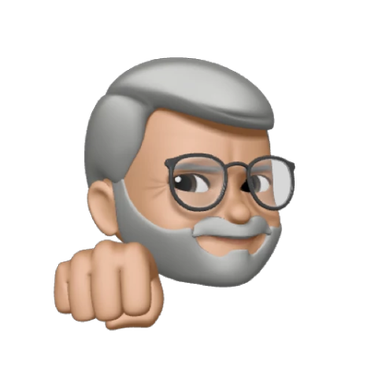The State of Hard Tech
The last two decades were all about cloud and SaaS tools built on top of that for the tech industry. What we witnessed was "the end of software," as Marc Benioff of Salesforce had prophesied in 1999. The software sold in boxes and came in CD-ROMs was no more.
This development particularly transformed startups and SMBs, making software more affordable for them. Cloud and SaaS turned out to be great equalizers, leveling the playing field for startups, SMBs, and enterprises. These two innovations helped promote online collaboration, streamline processes, increase efficiency, and reduce costs for every customer. Looking back, what cloud and SaaS accomplished was nothing short of a “revolution in business operations.”
"Where is my flying car, dammit!"
The democratization of software and efficiency gains achieved in daily operations are laudable outcomes. However, despite these wins, the digital revolution is not comparable to the scientific achievements of the previous century. No matter how impressive the technologies of the last two decades are, apps and widgets can't hold a candle to the life-altering developments of the previous century: The invention of penicillin and the resultant increase in average life span, the Moon landing, the emergence of air transport, the successful commercialization of new technologies like electricity, internal combustion engine, telephone, etc.
The disillusionment with the achievements of the tech industry in the last two decades is best summed up in the words of Peter Thiel:
"We wanted flying cars; instead, we got 140 characters."
But how did that happen? Did we lose our mojo in the last quarter of the twentieth century? Was it because people just had bigger dreams in the 1960s? Do we lack the audacity of the previous generations to try and change the world?
"Me-too" investors for "me-too" ideas
While analyzing why the tech industry is not interested in tackling big problems, part of the blame must go to the institutional and individual investors controlling billions of dollars of capital. Investing acts as a signaling and incentivization mechanism for entrepreneurs. Ideas that get rewarded with funds inspire similar ideas elsewhere. As a result, founders are drawn to developing "me-too" products that do not define a new product category but remain content with copying a successful incumbent in the market. Investors tend to favor these "safe bets" and steer clear of projects exploring uncharted territory.
However, founders are not the only stakeholders guilty of imitation in the startup world. Just as cloning ideas is seen as a viable business model among founders, imitating fellow investors has become the order of the day for investors. Paul Graham puts it succinctly:
"By far the biggest influence on investors' opinions of a startup is the opinion of other investors. There are very, very few who simply decide for themselves. Any startup founder can tell you the most common question they hear from investors is not about the founders or the product, but 'who else is investing?' "
So, it turns out that the majority of investors we admire for their foresight and business acumen are just bandwagoners copying their rivals. That is surprising, considering that most venture capitalists and angel investors profess to chase outsized returns in light of the famous "power law." Apparently, they talk the talk, but only very few of them dare to walk the walk.
The herd mentality demonstrated by investors during decision making contradicts the ambition to win big with the next investment. How can you expect to beat your rivals by 100x or 1000X when you copy their investing practices? Consensus investments, even when they pan out, do not produce spectacular gains.
Still, not every investor is happy following the crowd. For example, Peter Thiel is charting a different course nowadays, focusing on projects attacking big problems. Thiel was one of the co-founders of PayPal. He wrote the first cheque for Facebook in 2004 and went on to become one of the godfathers of the prevalent Silicon Valley culture. Today, Thiel seems to have seen the light finally, distancing himself from the conventional investing practices of the day. He is mentoring young rebels like Vitalik Buterin, funding ambitious college dropouts, and backing projects that will reverse human aging or build anarchic off-shore communities.
Whether it is his guilty conscience for his role in creating the app-driven tech culture or escapism from this reality, Thiel is putting his money where his mouth is. At Founders Fund, where he is a partner, 20 percent of the capital comes from the partners themselves. In an investment world where investors like to gamble with other people's money, that speaks volumes about the man.
The winds of change
The last few years have proved Peter Thiel right. There is a renewed interest in hard tech companies seeking solutions to big problems. Hard tech refers to initiatives "that require immense imagination and innovation" to develop breakthrough products. The technology and engineering involved in these initiatives tend to be so complex that the risk of failure is deemed quite high.
This revival of interest benefits from how our daily lives have come to be threatened by unusual developments lately. It was first the climate-related problems like extraordinary droughts or extreme summer floods that opened our eyes to the fact that we could no longer ignore global warming. This awareness triggered a novel look at industries like energy, automotive, agriculture, and construction.
Then the Covid-19 pandemic happened. It proved that a single virus could hold the whole of humanity hostage for months, urging us to keep investing in health, biotech, genetics, and chemistry to stop that from happening again.
In February 2022, it was the war that disrupted our lives regardless of where we lived. The Russian invasion of Ukraine reminded us that food security was something a country could not delegate to another country and that energy security was a strategic issue. A winter with rising food and energy prices will make sure that these topics remain popular.
It is no surprise that people are turning to hard tech companies to deal with these big problems. Thankfully, the interests of humanity at large and those of the investors finally seem to have aligned. We may hope to see real progress (not mere efficiency gains) really soon.
Final thoughts
"Necessity is the mother of invention," as the proverb goes. If that holds true, we may expect a new wave of inventions at a time humanity is tested by monumental challenges. The stage seems set for the return of hard tech. Maybe it is time for investors to stop worrying about "Who else is investing?" and back those founders who have the audacity to envision a radically different and better world.




 Please
fill out this field
Please
fill out this field









